CHAPTER XVI
您可以在百度里搜索“Now It Can Be Told 艾草文学(www.321553.xyz)”查找最新章节!
CHAPTER XVI
General Haldane was friendly to the war correspondents—he had been something of the kind himself in earlier days—and we were welcomed at his headquarters, both when he commanded the 3d Division and afterward when he became commander of the 6th Corps. I thought during the war, and I think now, that he had more intellect and “quality” than many of our other generals. A tall, strongly built man, with a distinction of movement and gesture, not “stocky” or rigid, but nervous and restless, he gave one a sense of power and intensity of purpose. There was a kind of slow-burning fire in him—a hatred of the enemy which was not weakened in him by any mercy, and a consuming rage, as it appeared to me, against inefficiency in high places, injustice of which he may have felt himself to be the victim, and restrictions upon his liberty of command. A bitter irony was often in his laughter when discussing politicians at home, and the wider strategy of war apart from that on his own front. He was intolerant of stupidity, which he found widespread, and there was no tenderness or emotion in his attitude toward life. The officers and men under his command accused him of ruthlessness. But they admitted that he took more personal risk than he need have done as a divisional general, and was constantly in the trenches examining his line. They also acknowledged that he was generous in his praise of their good service, though merciless if he found fault with them. He held himself aloof—too much, I am sure—from his battalion officers, and had an extreme haughtiness of bearing which was partly due to reserve and that shyness which is in many Englishmen and a few Scots.
In the old salient warfare he often demanded service in the way of raids and the holding of death-traps, and the execution of minor attacks which caused many casualties, and filled men with rage and horror at what they believed to be unnecessary waste of life—their life, and their comrades'—that did not make for popularity in the ranks of the battalion messes. Privately, in his own mess, he was gracious to visitors, and revealed not only a wide range of knowledge outside as well as inside his profession, but a curious, unexpected sympathy for ideas, not belonging as a rule to generals of the old caste. I liked him, though I was always conscious of that flame and steel in his nature which made his psychology a world away from mine. He was hit hard—in what I think was the softest spot in his heart—by the death of one of his A. D. C.'s—young Congreve, who was the beau ideal of knighthood, wonderfully handsome, elegant even when covered from head to foot in wet mud (as I saw him one day), fearless, or at least scornful of danger, to the verge of recklessness. General Haldane had marked him out as the most promising young soldier in the whole army. A bit of shell, a senseless bit of steel, spoiled that promise—as it spoiled the promise of a million boys—and the general was saddened more than by the death of other gallant officers.
I have one memory of General Haldane which shows him in a different light. It was during the great German offensive in the north, when Arras was hard beset and the enemy had come back over Monchy Hill and was shelling villages on the western side of Arras, which until then had been undamaged. It was in one of these villages—near Avesnes-le-Compte—to which the general had come back with his corps headquarters, established there for many months in earlier days, so that the peasants and their children knew him well by sight and had talked with him, because he liked to speak French with them. When I went to see him one day during that bad time in April of '18, he was surrounded by a group of children who were asking anxiously whether Arras would be taken. He drew a map for them in the dust of the roadway, and showed them where the enemy was attacking and the general strategy. He spoke simply and gravely, as though to a group of staff-officers, and the children followed his diagram in the dust and understood him perfectly.
“They will not take Arras if I can help it,” he said. “You will be all right here.” Now It Can Be Told




